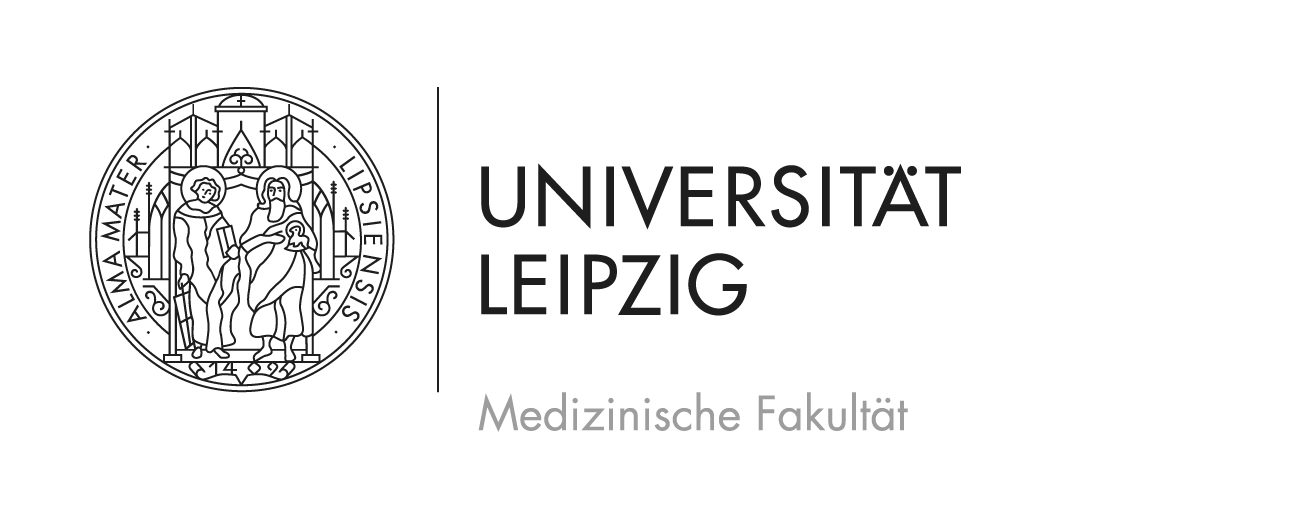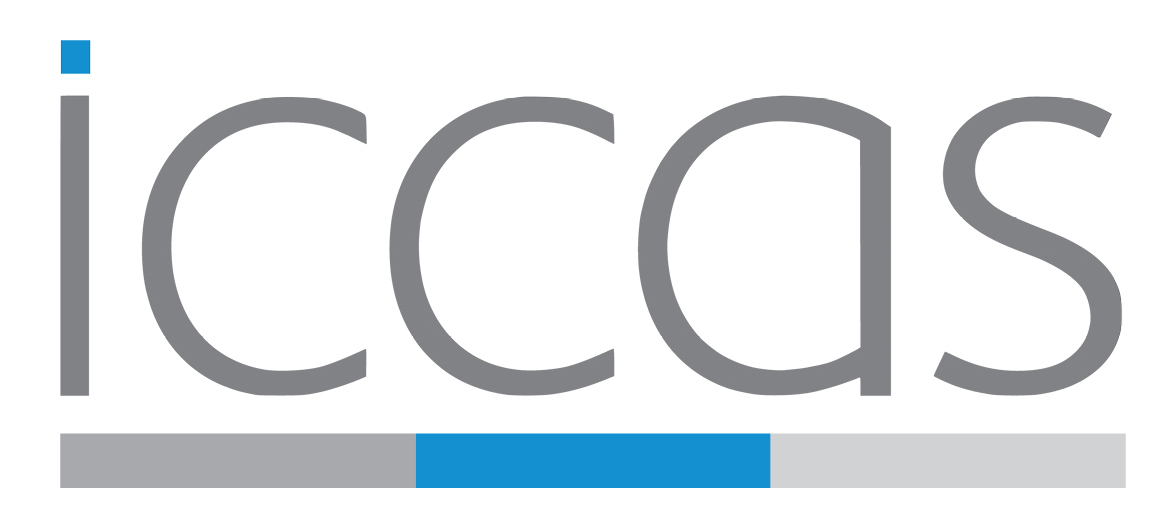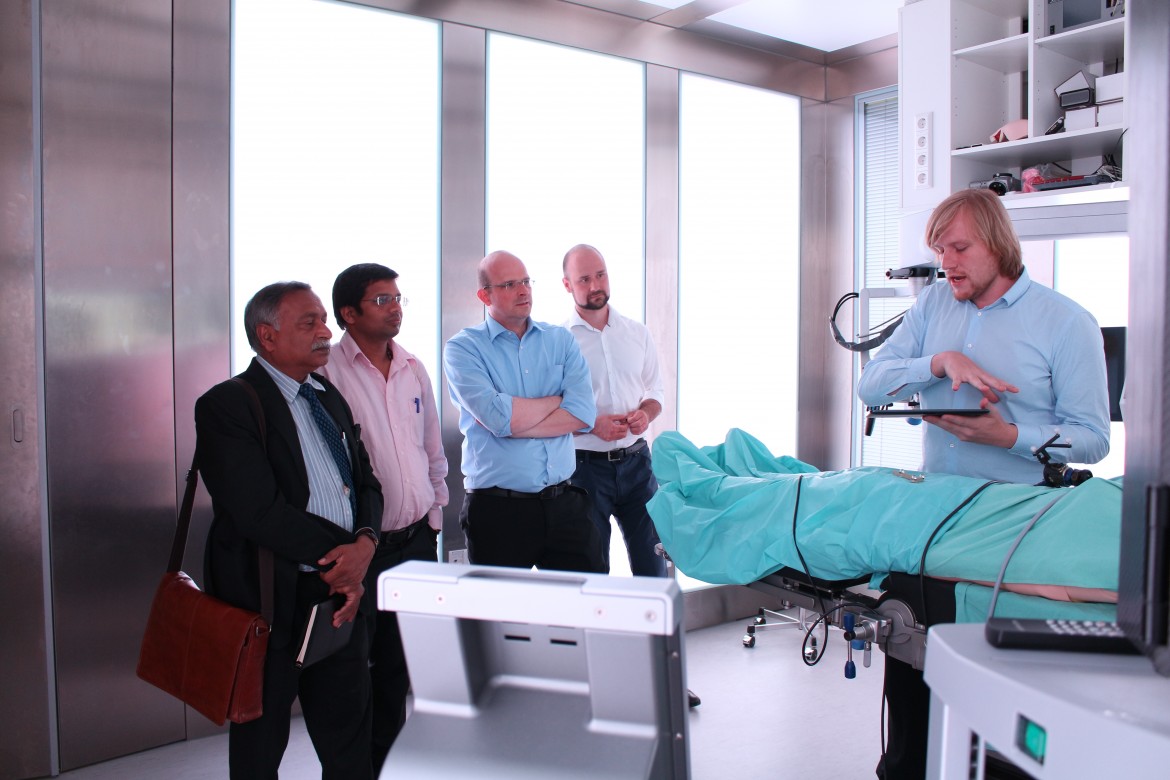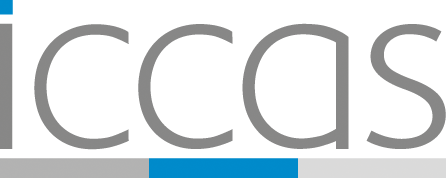28.09.2016
 ICCAS auf der CURAC 2016
ICCAS auf der CURAC 2016
Sep. 28, 2016
From Sep. 29 until Oct. 01, 2016 ICCAS will be represented at the Annual Conference of the German Society for Computer and Robotic Assisted Surgery (CURAC) in Bern (Switzerland). CURAC is an interdisciplinary society which connects clinic, engineering sciences and basic research. There will be ICCAS contributions at the following sessions:
Session “Human Machine Interfaces”
Sep. 29, 2016 | 11:45 – 12:45 am
Chair: Prof. T. Neumuth
Lecture: “Towards an information presentation model of a situation-aware navigation system in functional endoscopic sinus surgery” (R. Bieck, K. Heuermann, M. Schmidt, A. Schmitgen, S. Arnold, A. Dietz, T. Neumuth)
Session “ENT Surgery”
Oct. 01, 2016 | 10:30 – 11:45 am
Lecture: “Medical logic modules for monitoring the diagnostic delay in the treatment of laryngeal cancer” (J. Gaebel, L. S. M. Heuft, M. Stöhr)
20.09.2016
 Erfolgreiche DORS-Woche 2016
Erfolgreiche DORS-Woche 2016
Sep. 20, 2016
Last week, ICCAS’s 3rd Digital Operating Room Summer School took place. The internationally oriented course familiarized about 20 participants latest computer-assisted OR-technolgy from the object of research until the direct use on the patient.
Computer scientists, engineers and medics from Germany, Switzerland, the Netherlands, Turkey, Italy, China, Japan and India experienced an inspiring week with many practical sessions. The well filled programm kept its promise – interesting expert lectures, followed by practical exercises partly on patient phantoms and visits to state-of-the-art operating theaters and labs of Leipzig University Hospital and Heart Center Leipzig.
The participants praised the good balance between clinical and technical aspects as well as the theoretical explanations and practical sessions. The whole course was certified with 57 credits by the national authority ‘Sächsische Landesärztekammer’ and with 33 European CME-credits (EACCME®). Next year there will be one more DORS.
[nggallery id=36]
12.09.2016
 Auftakt DORS 2016
Auftakt DORS 2016
Today, ICCAS’s 3rd ‘Digital Operating Room Summer School’ has started. Prof. Andreas Melzer und Prof. Thomas Neumuth welcomed the international participants in the morning. They can expact an instructive week full of practical workshops on computer-assisted interventions and exciting visits to modern intervention techologies in Leipzig University Hospital and Heart Center Leipzig.
09.09.2016
 Workshop “OP-Integration” startet
Workshop “OP-Integration” startet
Sep. 09, 2016
On September 16 and 17, ICCAS invites to a first workshop ‘OR-integration’. Here, partners of the national major project ‘Secure and dynamic networking in operating room and hospital'(OR.Net) and representatives of the Japanese project ‘HyperSCOT’ meet to exchange their experiences.

18.08.2016
 Bundesgesundheitsminister Hermann Gröhe gastierte am ICCAS
Bundesgesundheitsminister Hermann Gröhe gastierte am ICCAS
August 18, 2016
On the afternoon of August 17, ICCAS was visited by Hermann Gröhe, Germany’s Minister of Health, during his summer tour. In his address, he stressed his backing for innovation, as long as it can be put to broad use. He also mentioned that he had been strongly recommended by experts to visit the Future Operating Room at ICCAS. He was accompanied by Babara Klepsch, Saxony’s State Minister of Social Affairs and Consumer Protection.
Examples of practical high-tech equipment were demonstrated to the two ministers, who also tried some of it out for themselves. They tested the smart capabilities of assistive technology during simulated surgery on ear and nose of a phantom patient involving microscope, endoscope and mill. The new possibilities of surgical support prompted admiration – and also a number of questions. Answers were provided by ICCAS’s two directors: Professor Andreas Melzer (from clinical perspective) and Professor Thomas Neumuth (from technical angle). They emphasized that R&D work at ICCAS was intended to help physicians rather than replace their expertise and activity. Hermann Gröhe explained that networking and interoperability were also key issues for the German government in connection with ensuring that everyone benefits from state-of-the-art medicine. He added that centers like ICCAS – where the principles of vendor-independent networking in the operating room were already being demonstrated – were essential for this purpose.
Finally, the visitors witnessed a presentation of the CephaLense – an assistance system for the optimal display of anatomical structures of the skull. It enables neurosurgeons to better pinpoint access routes for interventions in the brain by avoiding critical tissue structures. It’s an inexpensive mobile device which can also be used in emergency surgery.
Other guests in attendance during the ministers’ visit included Professor Beate Schücking (Rector of the University of Leipzig), Professor Michael Stumvoll (Dean of the Faculty of Medicine), Professor Oliver Gotthold (Administrative Director of the Faculty of Medicine) and Professor Wolfgang Fleig (Medical Director of Leipzig University Hospital) as well as Professor Andreas Dietz (Director of the Department of Otolaryngology and a member of the ICCAS Board) and Professor Jürgen Meixensberger (Director of the Department of Neurosurgery, head of the ICCAS Board).
[nggallery id=35]
10.08.2016
 Bundesgesundheitsminister besucht das ICCAS
Bundesgesundheitsminister besucht das ICCAS
August 10, 2016
On 17th August 2016, ICCAS will be the second station of Federal Health Minister’s summer trip. Hermann Gröhe will inform himself on the focal aspect ‘computer-assisted medicine’. At this date, Saxons State Minister for Social Welfare and Consumer Affairs Barbara Klepsch and Leipzig University’s Rector Prof. Dr. Beate A. Schücking will also be present.
The visitors will see demonstrations of the high technology at ICCAS’s future operating theater and the presentation of the ‘Magic Lens’, a visual system for minimally invasive interventions.
04.08.2016
 Steffen Oeltze Jafra ist neuer DPM – Nachwuchsgruppenleiter
Steffen Oeltze Jafra ist neuer DPM – Nachwuchsgruppenleiter
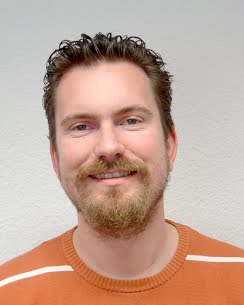
August 04, 2016
Dr.-Ing. Steffen Oeltze-Jafra has been leading the research group ‘Digital Patient-and Process Model’ since July 2016. The engineer changed from the Department of Simulation and Graphics at Magdeburg’s University to ICCAS. There, he worked in the Visualization Group. Oeltze-Jafra Oeltze-Jafra developed approaches for the analysis and visualization of complex image, simulation, and other non-image data from CT, MR, and Ultrasound imaging, Computational Fluid Dynamics simulations, and population studies. His special field is the coupling of automatic analysis techniques and interactive visualizations. There, he already gained experiences in the fields of clinical medicine, epidemiology and biology.
The new group leader is not a blank sheet at ICCAS. He already worked in cooperation with ICCAS and the Leipzig University Hospital for a project regarding the evaluation of intraoperative 3D-ultrasound perfusion imaging. For Oeltze-Jafra ICCAS’s excellent infrastructure and its practical research were main reasons of the change. But not least, his expertise in visualization fits perfect in the next research steps on the Digital Patient Model. The analysis and visualization of the huge amount of heterogeneous data per patient generated along his or her clinical pathway is a big challenge for him.
Oeltze-Jafra can easily imagine that in the future patient- and disease-specific models will advise physicians the best therapy options. Medics receive a valid support on therapy decisions based on funded scientific data. Furthermore, patients better understand the ways of treatment and are more closely involved in the therapy process.
The ICCAS-team welcomes Mr. Oeltze-Jafra and looks forward to a successful teamwork.
01.07.2016
 Anbahnung Deutsch-Indischer Kooperation am ICCAS
Anbahnung Deutsch-Indischer Kooperation am ICCAS
01.07.2016
Das ICCAS führte am 28.06.2016 erste Gespräche mit Wissenschaftlern des „Sanjay Gandhi Postgraduate Institutes of Medical Sciences (SGPGI)“ zu einer möglichen Kooperation im Rahmen des Telemedizin Programmes der zugehörigen „School of Telemedicine & Biomedical Informatics“. Die Gäste aus Lucknow, Uttar Pradesh (Indien) besichtigten die Technik im Demo-Operationssaal und informierten sich über Infrastruktur sowie Vernetzungsmöglichkeiten in Operationssälen. Ziel der Initiative sind Lösungen für eine kostengünstige und flächendeckende medizinische Versorgung der Patienten in Indien.
Das SGPGI ist ein universitäres Bildungsinstitut für die postgraduale medizinische Weiterbildung in Indien. Es ist an eine der bedeutendsten Kliniken des Landes gekoppelt.
 ICCAS auf der CARS 2016
ICCAS auf der CARS 2016
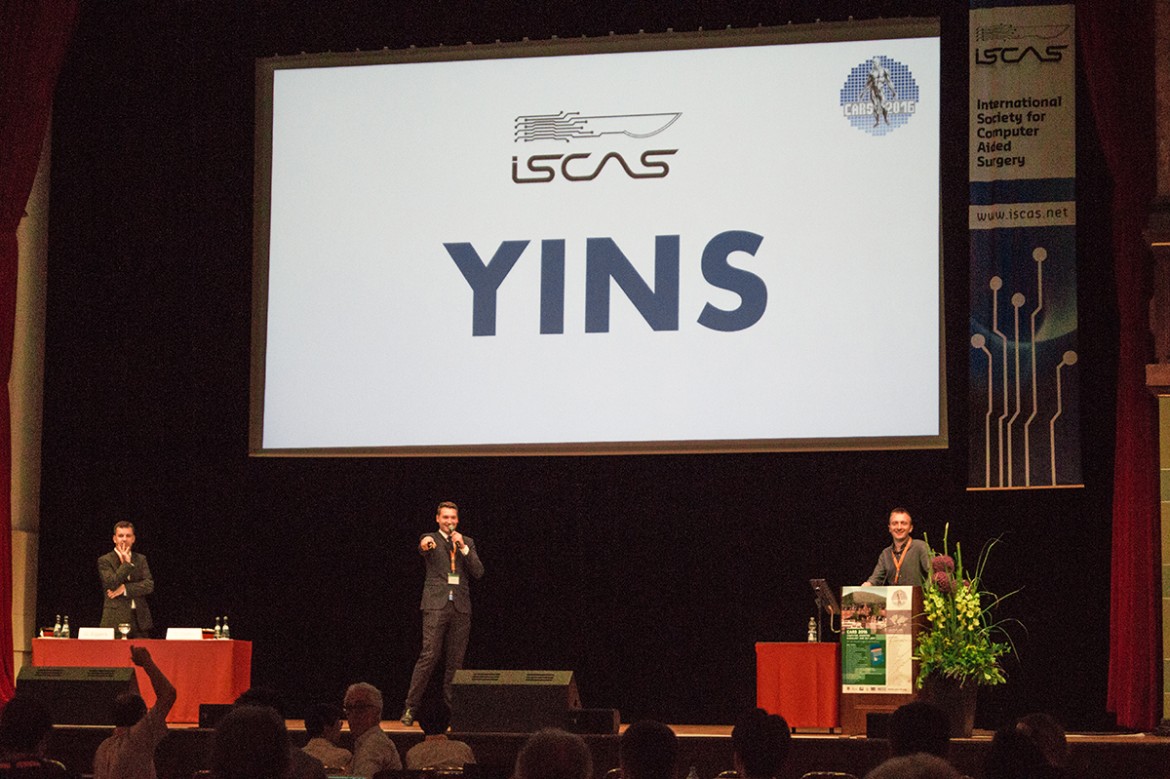
01.07.2016
Der 30. Computer Assisted Radiology and Surgery (CARS) – Kongress lud in diesem Jahr vom 21.-25. Juni in die Heidelberger Stadthalle ein. Das ICCAS war mit zahlreichen Beiträgen vertreten. Die Wissenschaftler stellten die neuesten Projektentwicklungen in Vorträgen, Workshops und auf Postern vor. Zudem gestaltete das ICCAS die Young Investigator Networking Session (YINS), in der Junior- und Seniorforscher zusammentrafen.
Viel positives Feedback gab es für das ICCAS hinsichtlich der Forschungserfolge zu standardisierten Vernetzungen im Operationssaal. Weiterhin interessierte sich die internationale Community sehr für die Themenbereiche IHE Surgery, Workflow und Digitales Patientenmodell, in denen das ICCAS federführend ist. Die Forschungsthemen förderten angeregte Diskussionen zwischen Medizinern und Technikern.
Präsentationen:
- Konzepte für IHE Integrationsprofile zur Kommunikation von probabilistisch-graphischen Modellen (M. A. Cypko, H. U. Lemke)
- Synergismen von Ultraschall und Magnetresonanztomographie in der Interventionellen Radiologie (A. Melzer)
- Integrierte Patientenversorgung mit IHE, pre-, intra- und postoperativ (M. A. Cypko)
- Standardisierte semantische Modellierung von chirurgischen Workflows (J. Neumann, E. Schreiber, T. Neumuth)
- Entwicklung einer Metrik für die Klassifikationen und Visualisierung von Tumoren (K. Birnbaum).
- Enabling Innovation – Resultate des Deutschen Leuchtturmprojektes OR.NET (T. Neumuth)
27.06.2016
 Bunte Bilder in 3D zur Langen Nacht der Wissenschaften
Bunte Bilder in 3D zur Langen Nacht der Wissenschaften
June 27, 2016
During the long night of sciences visitors could visualize their temperature spectra of the skin at the ICCAS boost in the BBZ. A 3D-thermal camera delivered colored portraits of the visitors, which were following analyzed in the computer. Especially children were excited about their colorful images. On this midsummer evening the red shades dominated.
Infrared thermography is a noninvasive, contactless and user-friendly imaging technique. The method is suitable in medicine for the determination of appropriate skin transplants in plastic surgery. The ICCAS researchers proved the effectivity of this investigation procedure.
[nggallery id=33]
